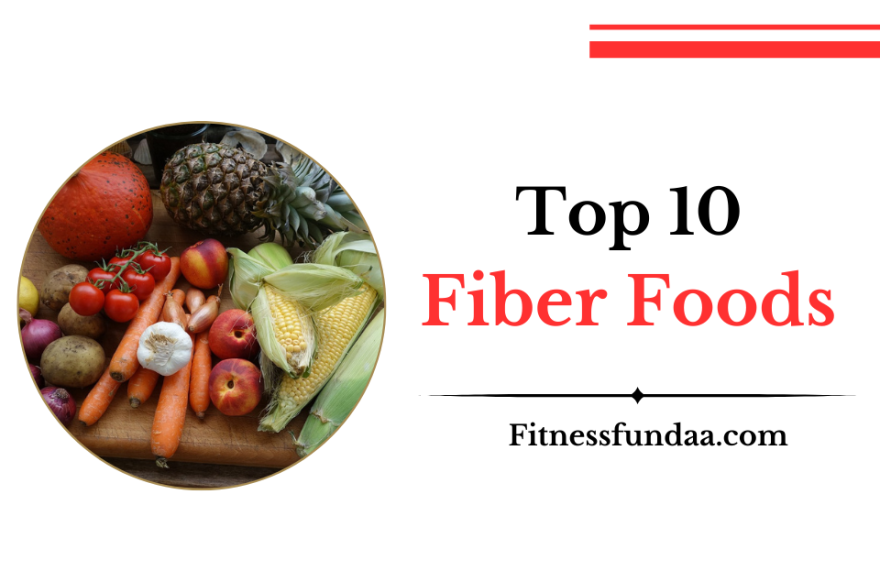Fiber, a vital component of a healthy diet, is a complex carbohydrate found in plant-based foods. It plays a crucial role in maintaining digestive health, promoting weight management, and reducing the risk of various chronic diseases. There are two main types of dietary fiber: soluble and insoluble. Soluble fiber dissolves in water to form a gel-like substance in the digestive tract, which helps to slow down the absorption of glucose and cholesterol, thus contributing to better blood sugar and cholesterol levels. Top 10 Fiber Foods . Fiber Foods .
Foods rich in soluble fiber include oats, legumes, fruits, and vegetables. On the other hand, insoluble fiber does not dissolve in water and adds bulk to stool, promoting regular bowel movements and preventing constipation. Whole grains, nuts, seeds, and the skins of fruits and vegetables are excellent sources of insoluble fiber.
Consuming an adequate amount of fiber is essential for maintaining a healthy digestive system. Fiber acts as a natural laxative, softening stool and easing its passage through the intestines, which can prevent constipation and promote regular bowel movements. Additionally, fiber promotes the growth of beneficial bacteria in the gut, which contribute to overall gut health and immune function.
Research suggests that a high-fiber diet may reduce the risk of developing various digestive disorders, including hemorrhoids, diverticulitis, and irritable bowel syndrome (IBS). Furthermore, fiber-rich foods tend to be more filling and satiating, which can help control appetite and prevent overeating, making fiber an important component of weight management and obesity prevention strategies.
In addition to its digestive benefits, fiber plays a crucial role in managing blood sugar levels and reducing the risk of type 2 diabetes. Soluble fiber slows down the digestion and absorption of carbohydrates, which helps to prevent spikes in blood sugar levels after meals.
By improving insulin sensitivity and reducing insulin resistance, fiber can contribute to better glycemic control and lower the risk of developing diabetes. Moreover, a high-fiber diet may help individuals with diabetes manage their blood sugar levels more effectively and reduce their reliance on medications.
Furthermore, fiber is associated with a reduced risk of cardiovascular disease due to its ability to lower cholesterol levels and improve heart health. Soluble fiber binds to cholesterol in the digestive tract, preventing its absorption into the bloodstream and promoting its excretion from the body. By lowering levels of LDL (bad) cholesterol, fiber helps to reduce the risk of atherosclerosis and heart disease.
Studies have shown that increasing fiber intake, particularly from whole grains, can significantly reduce the risk of heart attacks, strokes, and other cardiovascular events. Additionally, fiber-rich foods are often low in saturated fat and cholesterol, further supporting heart health.
Moreover, a high-fiber diet is linked to a lower risk of certain types of cancer, particularly colorectal cancer. Insoluble fiber adds bulk to stool and reduces the transit time of food through the digestive tract, which may decrease the exposure of the colon to carcinogens and toxins.
Additionally, fiber promotes regular bowel movements, preventing the buildup of harmful substances in the colon that could lead to cancerous growths. Studies have consistently shown that individuals who consume diets rich in fiber have a lower risk of developing colorectal cancer compared to those with low fiber intake.
Certainly! Here’s detailed information about the top 10 fiber-rich foods:
Beans and Legumes:
Beans and legumes are excellent sources of both soluble and insoluble fiber, making them a powerhouse for digestive health. Examples include black beans, lentils, chickpeas, and kidney beans. A one-cup serving of cooked beans can provide up to 15 grams of fiber. Additionally, beans and legumes are rich in protein, making them a great choice for vegetarians and vegans. They are also low in fat and cholesterol, contributing to heart health.
Whole Grains:
Whole grains are grains that contain the entire kernel, including the bran, germ, and endosperm, making them rich in fiber. Examples include oats, barley, quinoa, brown rice, and whole wheat. Whole grains are a significant source of insoluble fiber, which adds bulk to stool and promotes regular bowel movements. They also contain soluble fiber, which helps to lower cholesterol and regulate blood sugar levels.
Berries:
Berries such as raspberries, blackberries, strawberries, and blueberries are not only delicious but also packed with fiber and antioxidants. A one-cup serving of berries can provide up to 8 grams of fiber. Berries are particularly rich in soluble fiber, which helps to slow down digestion and promote satiety. They are also low in calories and high in vitamins and minerals, making them an excellent choice for a healthy snack or dessert.
Avocado:
Avocado is a unique fruit that is exceptionally high in fiber, healthy fats, vitamins, and minerals. A medium-sized avocado contains around 10 grams of fiber, making it one of the most fiber-dense fruits available. The majority of the fiber in avocados is insoluble, which contributes to digestive health by promoting regular bowel movements. Avocados are also rich in monounsaturated fats, which are beneficial for heart health.
Broccoli:
Broccoli is a cruciferous vegetable that is not only rich in fiber but also packed with vitamins, minerals, and antioxidants. A one-cup serving of cooked broccoli provides around 5 grams of fiber. The fiber in broccoli is primarily insoluble, which adds bulk to stool and aids in digestion. Additionally, broccoli contains sulforaphane, a compound with anti-inflammatory and anti-cancer properties.
Chia Seeds:
Chia seeds are tiny black seeds that are incredibly nutritious and loaded with fiber. A one-ounce serving of chia seeds contains a whopping 10 grams of fiber. The majority of the fiber in chia seeds is soluble, which forms a gel-like substance in the digestive tract and helps to regulate blood sugar levels and promote satiety. Chia seeds are also rich in omega-3 fatty acids, protein, and antioxidants.
Flaxseeds:
Flaxseeds are another powerhouse of fiber and essential nutrients. A one-tablespoon serving of flaxseeds contains around 3 grams of fiber. Flaxseeds are particularly high in
soluble fiber, which helps to lower cholesterol and promote heart health. They are also rich in alpha-linolenic acid (ALA), a type of omega-3 fatty acid that has anti-inflammatory properties. To reap the maximum benefits, it’s best to grind flaxseeds before consuming them.
Prunes:
Prunes, also known as dried plums, are well-known for their laxative effects and are often used to relieve constipation. A one-cup serving of prunes provides around 12 grams of fiber. The majority of the fiber in prunes is soluble, which helps to soften stool and promote regular bowel movements. Prunes are also rich in antioxidants, vitamins, and minerals, making them a nutritious addition to your diet.
Artichokes:
Artichokes are a delicious and nutritious vegetable that is high in fiber and low in calories. A medium-sized artichoke contains around 7 grams of fiber. The majority of the fiber in artichokes is insoluble, which adds bulk to stool and aids in digestion. Artichokes are also rich in antioxidants, particularly flavonoids and polyphenols, which have anti-inflammatory and anti-cancer properties.
Pear:
Pears are a juicy and delicious fruit that is rich in fiber and antioxidants. A medium-sized pear provides around 6 grams of fiber, with the majority being soluble fiber. Soluble fiber helps to regulate blood sugar levels and promote satiety. Pears are also rich in vitamins and minerals, particularly vitamin C and potassium. Eating the skin of the pear can further increase its fiber content.
Incorporating these fiber-rich foods into your diet can help improve digestive health, promote weight management, regulate blood sugar levels, and reduce the risk of chronic diseases such as heart disease and cancer. It’s essential to consume a variety of fiber sources to ensure you’re getting an adequate intake of both soluble and insoluble fiber. Additionally, be sure to drink plenty of water, as fiber absorbs water and helps to soften stool, preventing constipation.
In conclusion, fiber is an essential nutrient that offers numerous health benefits, including improved digestive health, weight management, blood sugar control, heart health, and reduced risk of chronic diseases such as diabetes and cancer. Including a variety of fiber-rich foods in your diet, such as fruits, vegetables, whole grains, legumes, nuts, and seeds, is crucial for meeting your daily fiber needs and promoting overall health and well-being.

